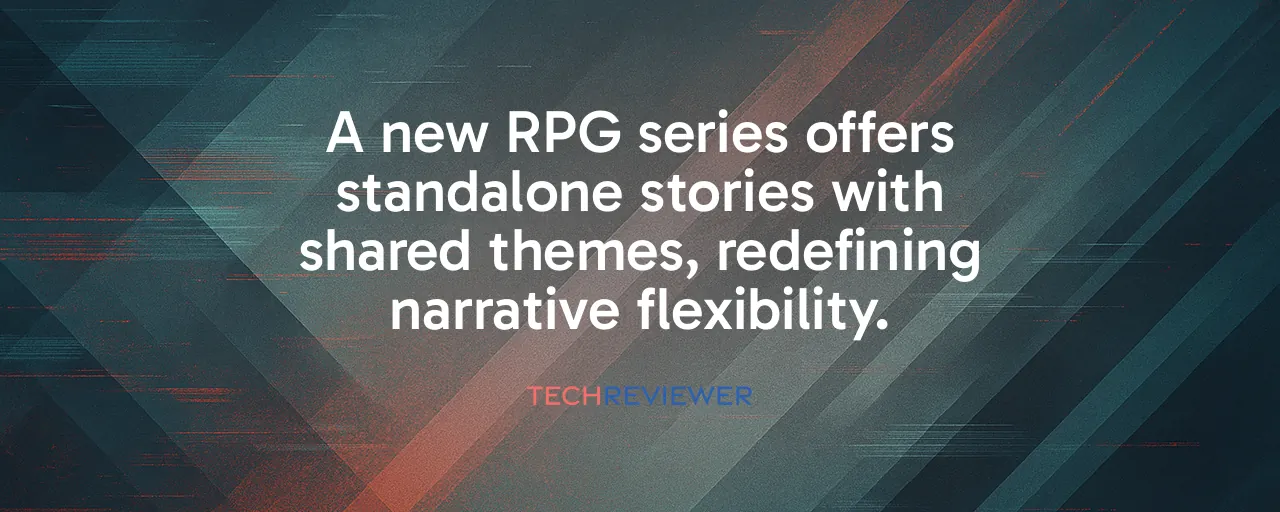A New Kind of RPG Franchise
Sandfall Interactive's Clair Obscur: Expedition 33 burst onto the scene in April 2025, selling 3.3 million copies in just 33 days. Its blend of turn-based combat, Unreal Engine 5 visuals, and a gripping story earned a 92% Steam user rating. Creative director Guillaume Broche recently shared that the game marks the start of a broader Clair Obscur franchise, with each entry telling a standalone story under a shared thematic umbrella. This anthology approach sets it apart from traditional RPG sequels that often lean on sprawling, interconnected narratives.
What makes this exciting is how it frees Sandfall to experiment. Unlike franchises tied to a single saga, like Final Fantasy, Clair Obscur can explore new worlds and characters with each game. Players get self-contained experiences, while the franchise builds on its surreal, emotional DNA. Broche's vision taps into a growing appetite for concise, 25-hour RPGs, as seen with hits like Sea of Stars II.
Crafting Big Worlds With Small Teams
Sandfall's 27-person team pulled off a feat that rivals AAA studios. Using Unreal Engine 5's advanced lighting and a custom 'Cinematic ATB' combat system, they delivered Expedition 33 in 38 months, with a file size under 45 GB. Their lean approach cuts bloat, focusing on tight level design and narrative depth. Compared to other retro-inspired successes, Sandfall shows that boutique studios can compete with giants like Square Enix.
However, small teams face real challenges. Sandfall's refusal to scale up could strain their ability to juggle DLC, ports, and new titles. Balancing ambitious visuals with sustainable development will be key as Unreal Engine 5's features expand. Still, their efficiency, like cutting porting time by 30% with a cross-platform shader pipeline, proves small studios can punch above their weight.
Why Anthologies Work
Anthology formats give Sandfall flexibility that traditional sequels lack. Expedition 33's branching endings make direct follow-ups tricky, but a new story in the Clair Obscur universe sidesteps this. Players love the game's adjustable challenge modes and inclusive UI, like its 100% color-blind design, which broaden its appeal. The anthology model also lets Sandfall refresh their tech with each entry, avoiding the legacy code that bogs down long-running series.
This approach aligns with market trends. RPG players, tired of 100-hour open-world epics, crave shorter, polished experiences. Octopath Traveler III's success underscores this shift. However, to avoid sequel fatigue, Sandfall needs to maintain narrative quality. If the writing stumbles, the anthology's promise could falter, as seen in some anthology series where later entries lost steam.
Lessons From Community and Charity
Sandfall's community engagement offers a masterclass in player connection. Expedition 33's mod toolkit enabled fans to subtitle the game in eight languages in just 10 weeks, a stark contrast to AAA titles that often lag in localization. This participatory model strengthened player loyalty and set a new standard for accessibility in RPGs.
Another standout is the game's speed-run charity events, which raised $1.2 million for Médecins Sans Frontières. Unlike typical esports-driven fundraisers, these grassroots efforts tapped into Clair Obscur's passionate fanbase. The lesson? Small studios can amplify impact by empowering players, a strategy larger developers could learn from as they navigate crowded markets.
What Lies Ahead
Sandfall's next Clair Obscur game, likely 24-30 months away, could leverage Unreal Engine 5.3 for enhanced visuals, like Nanite foliage or path-tracing on PS5 Pro. Broche's team is already exploring optional co-op, though they'll need robust netcode to meet security standards like GDPR. Partnerships with indie orchestras for live scores or cross-promotion with Square Enix's retro catalog could further elevate the franchise.
Challenges remain. Sandfall must balance creative freedom with platform demands, as exclusive marketing deals could limit their vision. Ethical questions, like avoiding cultural tokenism in diverse narratives or handling optional microtransactions, will also shape player trust. For now, Clair Obscur's bold start signals a bright future for RPG innovation.
